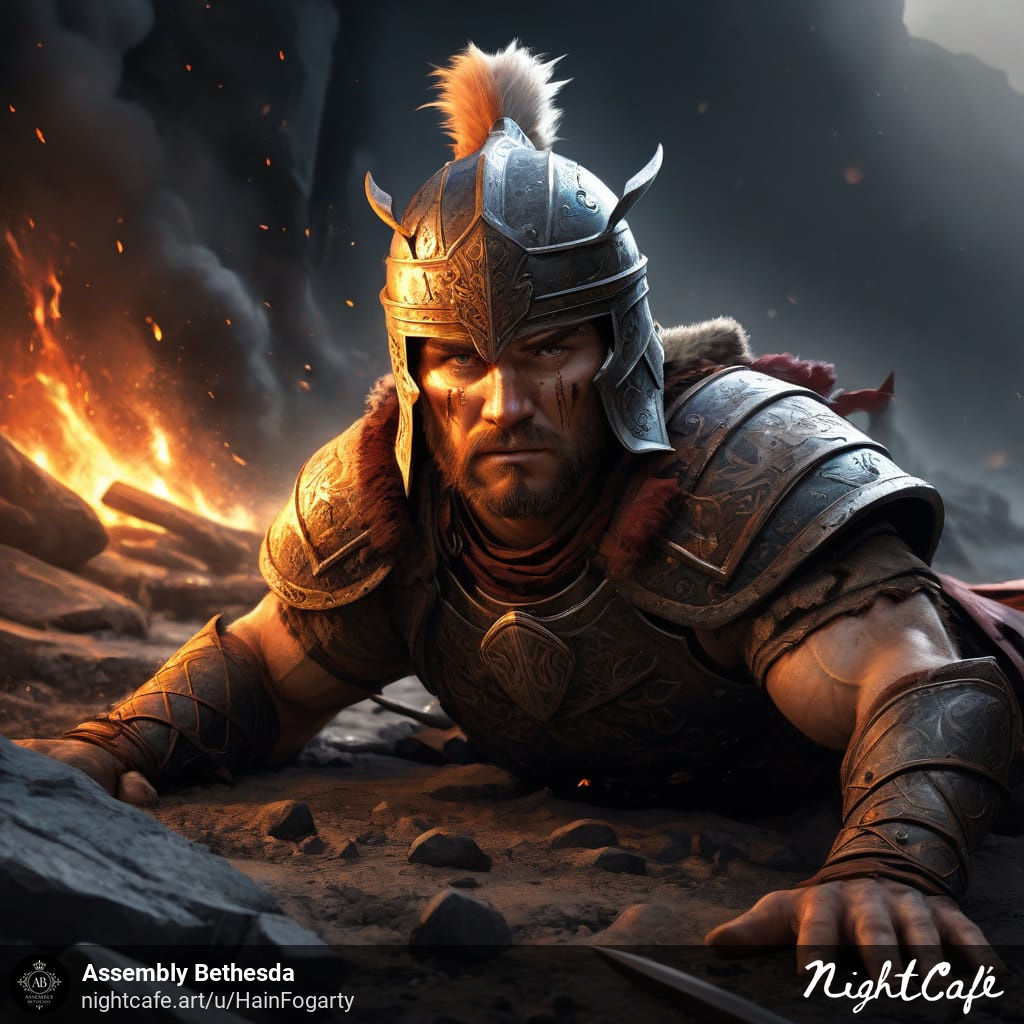During the quiet hours of midnight, when shadows stretch long and doubt whispers louder than prayers, I have found myself on the ground – metaphorically and sometimes literally. The enemy smirks, leaning in to gloat: See? You’re finished. Life knocks us down, doesn’t it? A diagnosis that steals your breath, a betrayal that fractures trust, a dream that is deferred that seems a death sentence to you. But oh, child of God, this is not the end. This is the prelude to your mighty roar.
In the midst of a storm, Micah 7:8 has become my anchor: “Do not gloat over me, my enemy! Though I have fallen, I will rise.” Though I sit in darkness, the Lord will be my light.” Penned by the prophet Micah amid Israel’s exile and despair, this isn’t polite poetry, it’s a battle cry. It’s resilience wrapped in revelation, a defiant declaration that our falls are not final. In a world that celebrates the unbroken, Micah reminds us: true strength isn’t avoiding the pit; it’s climbing out with heaven’s fire in your veins.
There is an art to resilience that is fundamentally the ability to rise when all your muscles scream surrender. Consider the widow in Luke 21, who threw her last coins into the temple treasure, not because of abundance, but out of audacious faith. Or David, fleeing Saul’s spears, scrawling psalms in caves that echoed with fear as he fled the spears. These are not superheroes; they’re sinners saved by grace, learning resilience is not self-made. It is forged in the furnace of failure, tempered by the knowledge that our God specializes in resurrections.
As a mantra, I whisper it each morning, not because I feel strong, but because I choose to remember. Resilience is not the absence of scars; it is the refusal to let them define you. This biblical wisdom is echoed by scientists: post-traumatic growth occurs when adversity fosters deeper empathy and a sharper purpose. But for the believer, it is supernatural: the same Spirit that resurrected Christ from the grave quickens our weary bones. We are not lifted by our own willpower alone, but by the wind of the Almighty beneath our wings.
It does seem that the darkness loves to linger a long time, doesn’t it? It’s not just a lack of light, but a tangible weight—depression’s fog, grief’s abyss, the soul’s midnight in which God seems like a ghost. Even though I sit in darkness, Micah doesn’t sugarcoat it: He owns the descent, disorientation. Yet he also says that the Lord will be my light. Not “may be” or “could become” will be. The Hebrew word for light (‘or) implies illumination that penetrates, reveals, and warms. A pillar of fire leads slaves through the sea as the Shekinah glory descends on a tabernacle of tents.
I have sat in the darkness, phone in hand, scrolling feeds that amplify isolation. The solutions of the world are more noise, more hustle, more filters to fake the dawn, but divine light is quieter, fiercer. It is the still small voice whispering identity when Elijah begs for death in 1 Kings 19.
The Light of the World, Jesus, steps into our tombs and tells us, “Lazarus, come out!” In my own valley, that light broke through in fragments: a friend’s text at 2 a.m., a worship song that pierced the veil, a sunrise that painted the sky in defiance. Light in the divine world does not eradicate the darkness; it invades it, revealing lies and revealing paths we were unable to discover.
Isaiah 9:2 states, “The people who walked in darkness have seen a great light.” It is not our light; it is His, borrowed and blazing through our cracked vessels.
This leads us to victorious worship, the thunderclap that shakes the foundations. Worship isn’t passive praise; it is warfare. When Micah declares his rise, it is laced with prophetic worship—a song of triumph before the victory has been achieved. Imagine the prophet, surrounded by enemies, lifting his eyes to Zion and declaring his defiance. Fast forward to Revelation 12, where heaven erupts in song as war rages below. Each hallelujah echoes through eternity, pulling down strongholds.
While I was walking through my own storm, I discovered this power in a small group We did not sing happy songs, but cried laments that grew into anthems. One night, someone queued up a track called “I Hope Hell Shakes When I Rise,” a modern interpretation of Micah 7:8 set to soaring strings and thunderous drums. The fire burns inside, that’s my battle cry today! As we roared, tears streamed, fists were raised, the room transformed; darkness vanished.
It is not just about megachurch stages; it is about your bedroom, commute, and kitchen where dreams lie dormant as well. Even when the bulbs flicker out, this song declares: “Though I sit in darkness, the Lord will be my light.” There is resilience in rhythm, light in lyrics, and a refusal to let hell win.
We are beloved yet fallen, perhaps, but still far from finished. Micah’s cry echoes through millennia: Rise. Let His light lead. Worship like warriors. The enemy may gloat today, but tomorrow? Hell will shake at the sound of your voice. What would happen if we lived as this? What chains would shattered, what dawns would break? I challenge you: today, write your own verse. Stand in the darkness and sing. The Lord is your light. In that blaze, you will rise unshaken, unstoppable, alive and unstoppable.

